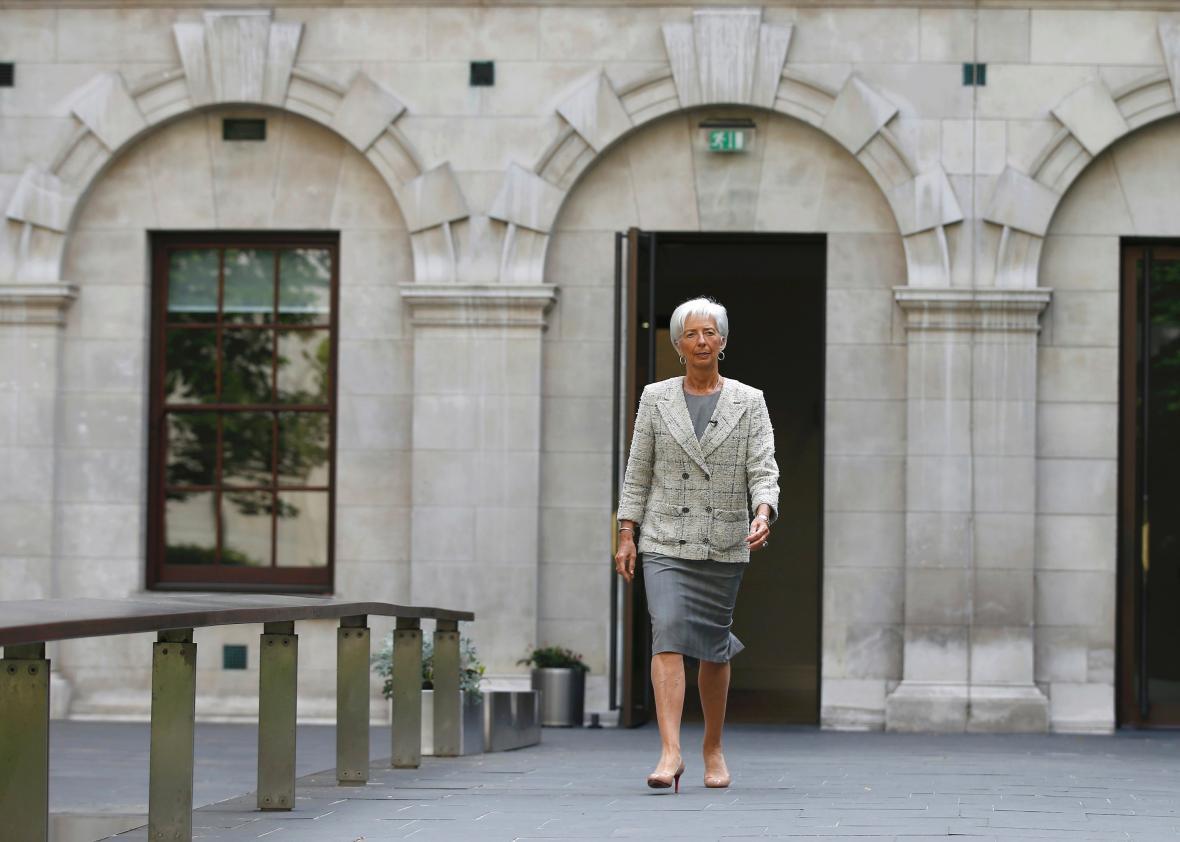The word neoliberal often gets bandied about as an all-purpose slur for anybody to the right of an Oberlin Socialists for Sanders rally. But in theory, it’s supposed to sum up an ideology that says the best recipe for economic growth, especially in developing countries, includes a combination of deregulation and modest government—an embrace of free trade, free flows of money across borders, low budget deficits, and private industry on the home front. Back in the 1980s and 1990s, there were few preachers who spouted the neoliberal religion with the same fervor as the International Monetary Fund, which gave loans to struggling nations on the condition that they undertake a whole lot of neoliberal reforms.
The IMF has been slowly backing off some of those ideas for several years now, partly thanks to the financial crisis and its aftermath, which made government budget-slashing look like a singularly bad course of action. (The IMF has actually played the voice of reason in Europe’s dealings with Greece, pushing for more debt reduction, for instance.) But it’s still a bit amazing to see a new paper from the organization titled ”Neoliberalism: Oversold?” The subhead is pretty blunt, too: “Instead of delivering growth, some neoliberal policies have increased inequality, in turn jeopardizing durable expansion.” Which, damn. Bernie fans are going to have a field day with this one.
Well, much of it. The paper isn’t a full-fledged assault on the old neoliberal agenda, of which it says there’s “much to cheer.” The growth of free trade “has rescued millions from abject poverty,” and privatizing state-owned companies “in many instances led to more efficient provision of services and lowered the fiscal burden on governments,” the authors write (which I’d say is not wrong). However, they single out two big areas of failure.
The first: free capital. A large piece of the neoliberal consensus said that people and companies should be able to move their money internationally without interference from the government, thus making it easier to invest in foreign countries (Americans are more likely to plunk their funds in, say, Brazil if they aren’t worried about getting it back out). This, theoretically would be a win-win. People would get a higher return on their funds by investing in potentially fast-growing developing nations, and developing nations would attract the investment necessary to grow. Thus, the IMF tended to discourage capital controls like limits on currency exchange.
But while great in theory, free capital hasn’t always worked out so hot in practice. It turns out that letting panicky investors plow their money into a country then pull it out the second something looks to be going awry has a way of ending in tears. “Since 1980, there have been about 150 episodes of surges in capital inflows in more than 50 emerging market economies … about 20 percent of the time, these episodes end in a financial crisis,” the authors write. This has been a somewhat obvious danger for a while: Look back at the 1997 Asian financial crisis. Or just Google the phrase “hot money.”
Issue No. 2: small government. While the researchers acknowledge that there’s still a case for smaller countries limiting their budget deficits so that markets don’t eventually turn and cut them off from borrowing, the argument is a lot weaker for major economies like Britain, the United States, and Germany. Moreover, they note that austerity policies like tax hikes and spending cuts can kneecap growth.
“In sum, the benefits of some policies that are an important part of the neoliberal agenda appear to have been somewhat overplayed,” they conclude. Thanks for the update, guys.
